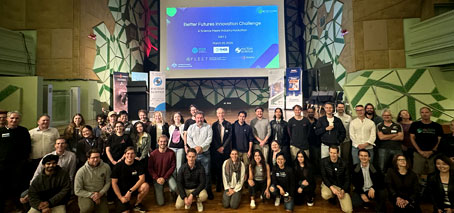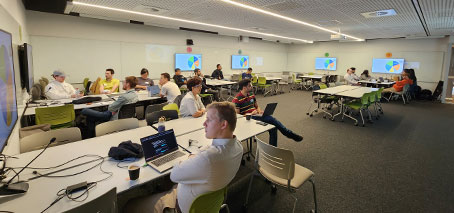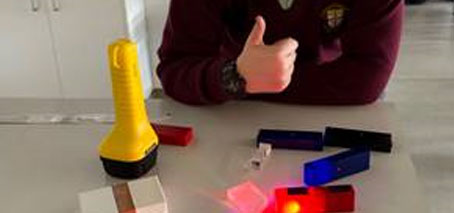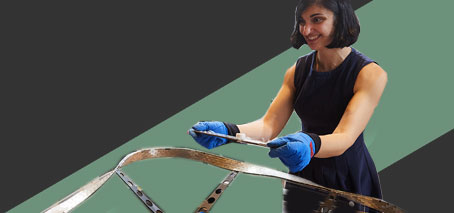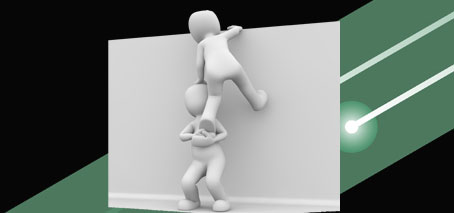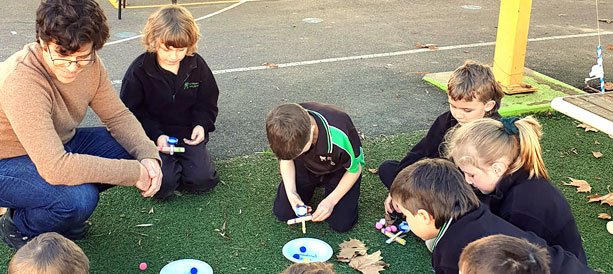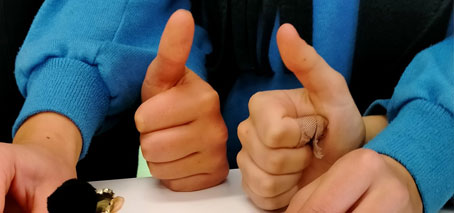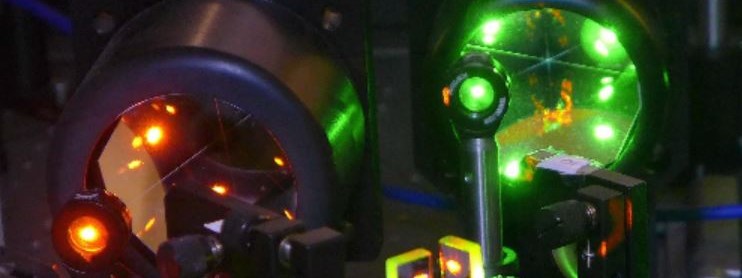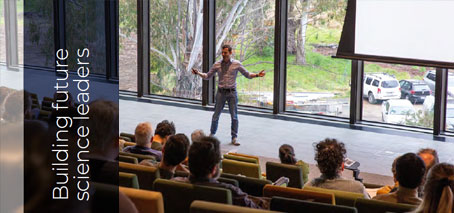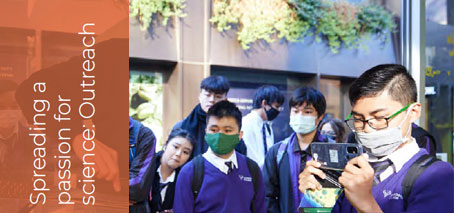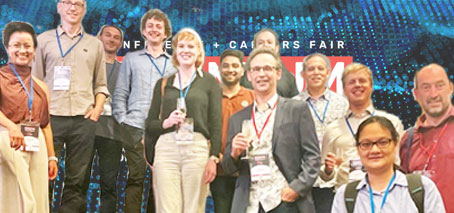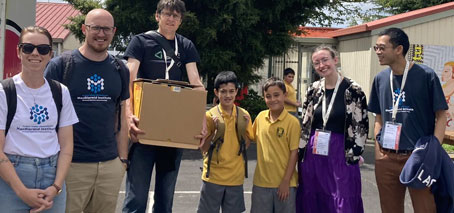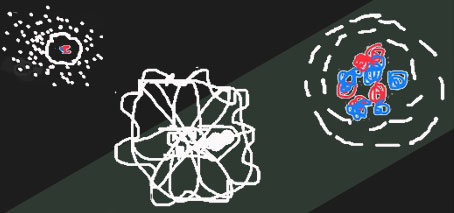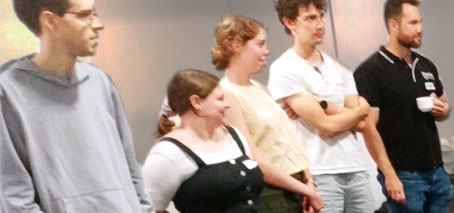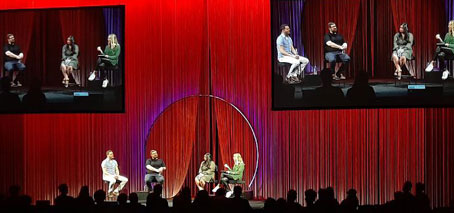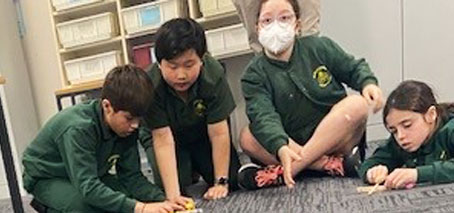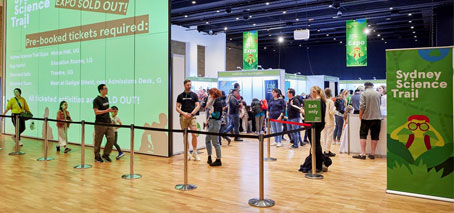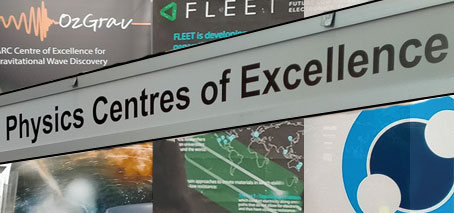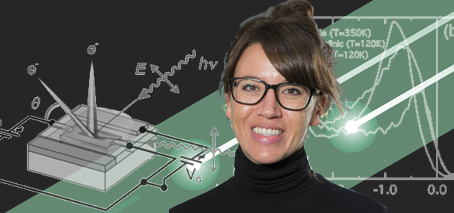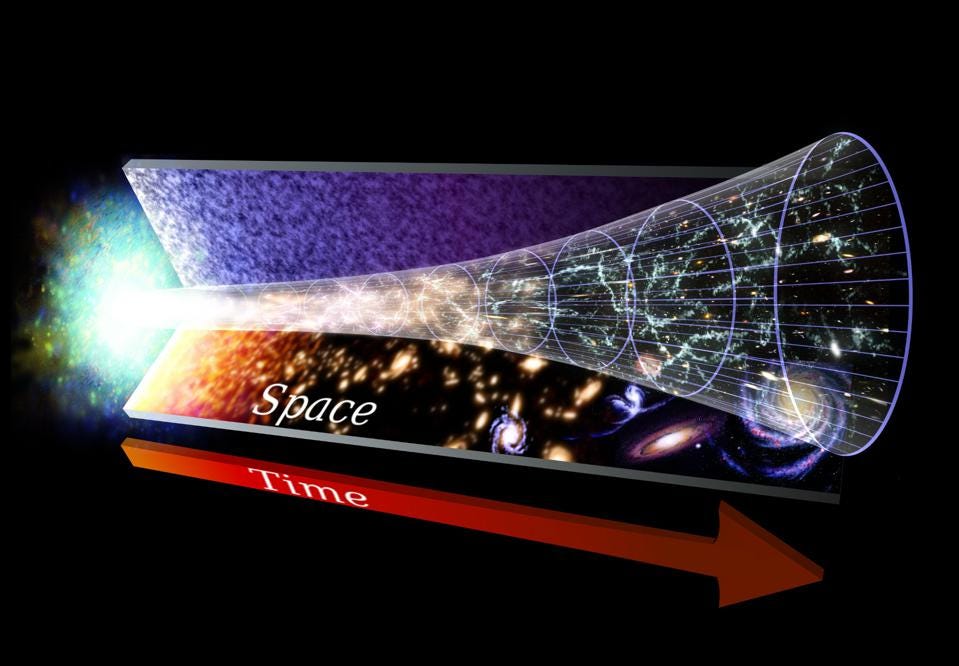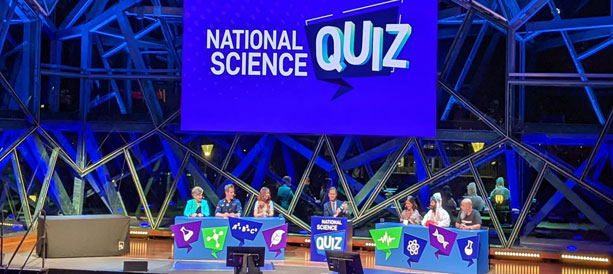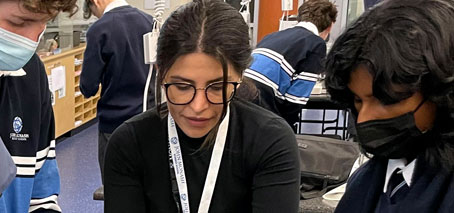Faster ways to respond to emergencies and ultra-sensitive quantum seismometers for earlier detection of earthquakes, were two ideas that emerged from teams of intrepid researchers from five Centres of Excellence who competed in the inaugural Better Futures Innovation Challenge to solve critical industry problems. Industry partners for the deep-tech hackathon had access to researcher skills spanning the fields of physics, …
FLEET alums and members value ‘soft’, transferable skills, and community
It is not just technical and scientific skills that set up FLEET graduates for future career success. Surveying alums and current members reveals the impact of technical and transferable skills gained in the Centre. FLEET is on a mission to develop the next generation of science leaders. In the nearly seven years since FLEET began we have trained over 100 …
FLEET outreach impact
FLEET ECR workshop developing transferrable skills (and bowling)
The FLEET Students and ECRs working group organised a workshop at UNSW on the 19th and 20th of October for FLEET early career researchers (ECRs) and students. Over two days, invited speakers shared lessons and experience on diverse skills essential for a researcher’s career development, such as profile building, science communication, mental health, and academic writing. On the first morning, …
Quantum atoms in regional Victoria outreach
FLEET took a road trip to Horsham in regional Victoria to introduce 100 Year 8 and 9 students to quantum physics and the colourful world of light. Year 8 students participated in range of hands-on activities such as the famous ‘Pepper’s Ghost’ visual illusion, and playing with lasers and prisms to understand reflection and refraction. Meanwhile Year 9 students took …
Levitating superconductor and the desire for a socially responsible digital future
The public’s awe of FLEET’s levitating superconductor and engaging dialogue with FLEET at the 2023 Sydney Science Trail enabled a shift in public understanding about how society uses digital technology and a call for a socially responsible digital future. FLEET was one of more than 20 science organisations engaging audiences with interactive exhibits at the Sydney Science Trail Expo, developed …
New funding to spark collaboration between industry and FLEET students
An exciting partnership between FLEET and APR-intern will fund new route to gain valuable ‘on the floor’ industry experience for FLEET PhD/Masters students, increasing job skills and leveraging Australian scientific expertise in industry, with funding supporting the placement of research students with industry partners. In addition to injecting fresh scientific and problem-solving energy into participating industry workplaces, the program will …
Expanded mentoring program
A new expanded mentoring network vastly increases the experience pool available for ECRs and others in 12 participating ARC Centres providing: structured mentoring with ongoing support and oversight access to a range of resources and peer-mentoring groups large, diverse pool of mentors and mentees for both researchers and professional staff. Allowing members of the participating Centres to access mentors in …
Getting wavy: New FLEET Schools Forces and Energy resource goes from Newton to Einstein
Learning about ‘wavy’ stuff you can’t see, smell, taste or touch can test students’ intuitive understanding of the world. FLEET’s latest Forces and Energy teacher resource examines energy from the physics of Newton to Einstein, to the wavy behaviour of sub-atomic particles such as electrons. Students learn how energy is crucial to our understanding of how everything in the universe …
Inspiring outreach, with bombs and light circuits
Teaching energy, releasing creativity, and inspiring future scientists FLEET and Monash volunteers used catapults, graphite circuits and diffraction goggles to create challenges for 250 Mater Christi College students competing to win their annual STEM Cup. For the STEM Cup challenge, which is judged on teamwork, innovation and communication, FLEET designed two hands-on workshops that got middle and senior secondary students …
Forces and energy: Quantum energy
Forces and energy: Electricity and sustainable energy
Forces and energy: Kinetic, potential, conservation and transformation
Forces and Energy: Energy and Work
Education and training in 2022
FLEET is developing future Australian science leaders and preparing them for future success FLEET is working to develop Australia’s next generation of science leaders. All FLEET’s students and young researchers receive excellent supervision, are offered world-class training and other opportunities for professional development, and are supported in navigating diverse future career pathways. The Centre currently supports 63 higher degree by …
Spreading a passion for science: Outreach in 2022
FLEET has an extremely ambitious program of STEM outreach and communication, engaging Australians with science – from school children to the public to policymakers FLEET’s outreach activities improve public awareness of FLEET research and scientific literacy among school students. FLEET members get a greater appreciation of their audience’s interests, understanding and values, and learn how to effectively communicate with them. …
FLEET represents at Quantum Australia
Written by Matt Gebert, FLEET PhD candidate, Monash University A large contingent of 14 FLEET members and alumni enjoyed the Quantum Australia conference last week, engaging in discussions about the future of quantum technologies with a lot of interest focused in quantum computing, in addition to sensing. I attended as a PhD student approaching the end of my candidacy, and …
Forging outreach relationships and taking nano and quantum to Rotorua schools
FLEET and MacDiarmid Institute members teamed up at the recent AMN10 conference in Rotorua NZ to conduct science outreach workshops for 320 local school students. Over four days, 25 volunteers from FLEET and partner organisation the MacDiarmid Institute visited seven schools and presented a variety of hands-on science workshops to students ranging from year 4 to 9, in a program …
Rural schools’ outreach
In 2022 FLEET extended outreach activities to a number of regional and remote schools. Such schools have limited opportunities to engage with visiting scientists, or to and participate with them in hands-on science workshops. Engagement with working scientists, and hands-on exercises, helps engage students’ curiosity, and exposes them to a greater breadth and depth of career opportunities in STEM and …
Creating a quantum spark in primary students
A FLEET Primary School pilot workshop showed primary students can learn and conceptualize quantum physics and are adept at the Mexican wave. Meanwhile, 155 Hughesdale Primary School students got their first introduction to quantum physics. The year 5 and 6 students explored the quantum atomic model via role-playing activities, applying this to understand how electricity and resistance work at the …
Developing research into impact at Idea Factory 2022
“It’s interesting to consider how to hold ourselves accountable to the taxpayers that ultimately fund scientific research.” Early-career researchers from two Centres of Excellence gathered in Queensland this month, learning how to better translate their scientific discoveries to make an impact. The focus of Idea Factory 2022 was expanded to develop a wider understanding of research translation, the translation/commercialisation ecosystem, …
Learning to see yourself in an entrepreneur role: Sunrise Innovation Festival
FLEET PhD candidate Maedehsadat Mousavi’s has reported in following attending the Sunrise innovation festival, building on her experiences at the EQUS-FLEET Idea Factory: “Previously, I would have never considered starting my own company or launching a start-up, but now I can see myself considering this future, and how an entrepreneur can have an impact on the world.” FLEET HDR students …
Boom! Watch out below. FLEET take their energy and forces workshop to Hughesdale Primary School
By using and modifying catapults made from icy pole sticks and rubber bands, 270 primary students from Hughesdale Primary school learned about forces and energy and thought critically about FLEET’s research and why we are trying to develop energy efficient electronics. FLEET developed the Forces and energy workshop for Years 4-7 based on pilot workshops run with primary schools in …
Captivating physics and our digital society—Sydney Science Trail
More than 1000 high-school and primary students, and another 1100 members of the public were introduced to FLEET’s research and the counterintuitive world of quantum physics at Sydney Science Trail in July, in FLEET’s largest post-pandemic outreach event to date. FLEET UNSW members were among the 20+ science orgs presenting at Sydney Science Trail, based at Australian Museum as part …
Teaching the teachers at CONASTA
FLEET has joined forces with two other ARC Centres of Excellence, Exciton Science and Ozgrav, at the 2022 Australian Science Teacher Conference (CONASTA) to engage primary and secondary educators about their research and educational resources. FLEET’s Senior Outreach Coordinator Jason Major conducted a professional development workshop at the event that informed and provided primary-early secondary teachers with the confidence to …
Julie Karel recognised for excellence in research and science outreach
Congratulations to FLEET’s Dr Julie Karel (Monash), receiving a Victorian 2022 Young Tall Poppy Science Award, recognising her research in functional amorphous materials for future ultra-low energy electronics, and in science outreach. The Young Tall Poppy awards, an initiative of the Australian Institute of Policy and Science, recognise excellence in research as well as enthusiasm for communicating science beyond the …
Ask the Physicists: Are the dimensions of space constant? Is today’s metre the same as tomorrow’s meter?
National Science Quiz
Over 200 in-person audience members and more than 400 online contestants competed in this month’s National Science Quiz, co-presented by FLEET with a collaboration of nine research organisations. Return host ABC TV and radio presenter Charlie Pickering, who has hosted each NSQ since the inaugural edition in 2017, chaired two competing teams, comprising: Astrophysicist Kirsten Banks (UNSW) Meteorologist Nate Byrne …
FLEET’s engagement with rural schools continues
Following on from FLEET’s previous trip to the western districts in May, Centre outreach coordinator Jason Major and COO Tich-Lam Nguyen visited Horsham College north of the Grampians to engage year 7 students and pilot-test FLEET’s Forces and Energy workshop. The budding scientists (all 170 of them) built catapults and balloon rockets to explore Newton’s 2nd and 3rd laws and …
2D materials workshop skilling up future Australian scientists
Nobel-winning material science in the classroom Gol Akhgar and Julie Karel (Monash) this month demonstrated graphene exfoliation with scotch-tape in the class, explaining the role of 2D materials in future beyond-CMOS electronics. The lesson is part of FLEET’s ongoing year-10 future electronics unit at John Monash Science School, which builds up from atomic/quantum fundamentals to transistor functions, logic circuits and …

